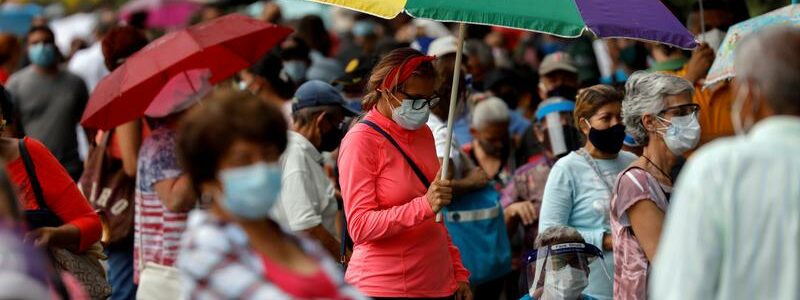
Venezuela to give COVAX ultimatum to ship vaccines
CARACAS (Reuters) – Venezuelan President Nicolas Maduro said on Sunday he will give the COVAX system an ultimatum this week to send the country’s share of coronavirus vaccines as all pending payments had been made to the global vaccine-sharing scheme.
Venezuela received word from COVAX in June that the last four payments had been blocked by UBS. The payments to cover the $120 million fee have already been made, he said.
Maduro said in a live appearance on state television that officials had been instructed to “give the COVAX system an ultimatum: they send us the vaccines or they give us the money back, period.”
Officials have said for months that sanctions were hampering their ability to make bank transfers necessary to pay for COVAX doses. But in April officials said they had made the payments to the entity, run by the World Health Organization (WHO), which provides doses to poor nations.
“The COVAX system has failed Venezuela,” the president said. “They don’t answer us.”
Venezuela, facing U.S. sanctions that affect its access to the global financial system, relied on domestic banks to make part of the payment to the COVAX system with foreign currency.
The Caribbean nation of 28 million people has received about 3.5 million Russian and Chinese vaccines since February. The vaccination rollout has been slow and confusing, according to specialists and Reuters witnesses.
Venezuela has expressed interest in receiving the Johnson & Johnson and Novavax vaccines through COVAX.
Earlier this year COVAX set aside 2.5 million doses of the AstraZeneca vaccine for Venezuela. But Maduro’s government prohibited its use due to concerns about blood-clotting, a very rare side-effect which the World Health Organization said was not sufficient to warrant halting its use.
About 30,000 doses of Cuban vaccine candidate Abdala have arrived in Venezuela for a study.
Venezuela has recorded more than 277,635 cases of the novel coronavirus and 3,190 deaths, according to official data. Some experts say the true numbers are higher due to lack of testing and transparency.
Source: Read Full Article